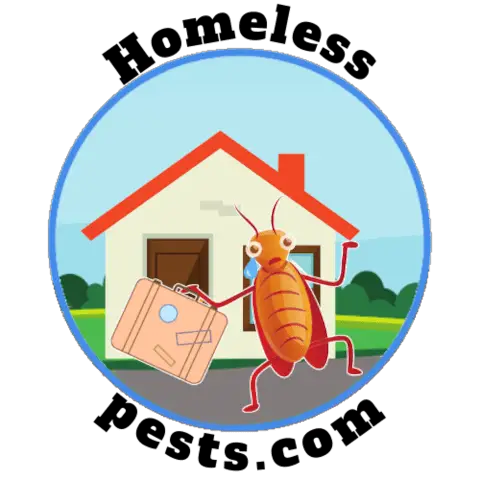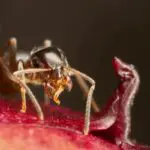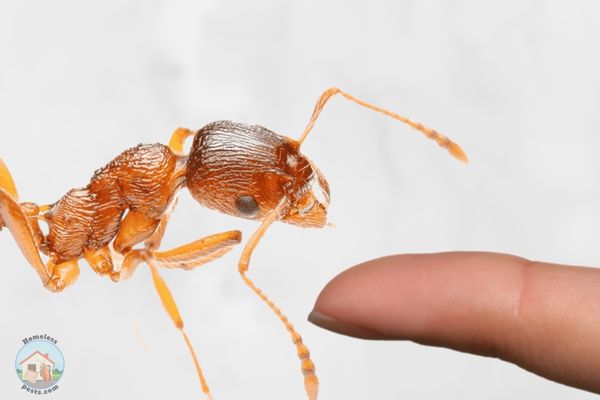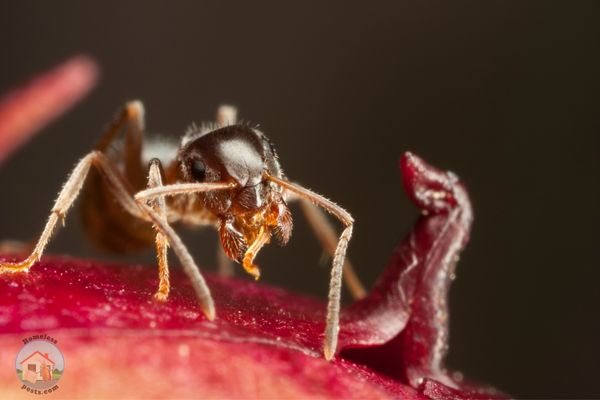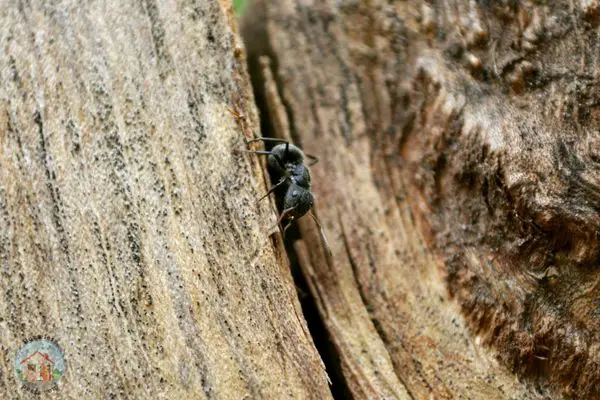If you’re a homeowner, there’s a good chance you’ve had to deal with ants at some point. Ants can be a real nuisance, invading your home in search of food and water, and leaving trails all over your countertops and floors.
While there are many commercial pesticides available to get rid of ants, many of these products contain harmful chemicals that can be dangerous to your family and pets. Vinegar is a natural, safe alternative to chemical pesticides that can be just as effective at getting rid of ants.
In this article, we’ll discuss how vinegar can be used to kill ants both inside and outside your home. We’ll also provide some tips on how to prevent ants from coming into your home in the first place.
Does white vinegar kill all types of ants?
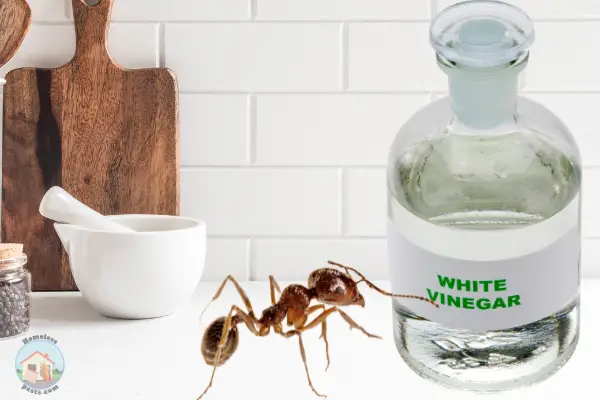
So, you’ve probably heard something about vinegar and how it can be used to eradicate your pesky ant problem. Bad news, it’s not quite as effective as a pesticide as people make out.
Vinegar, of all varieties, does not contain chemicals that are fatal to ants. In order to kill off an infestation, it’s necessary to use a potent compound such as Neonicotinoids. Nevertheless, Vinegar, like water, can be used to drown ants. It is also an excellent way to deter foraging ants which signal the presence of food sources.
The reason why is vinegar enough to repel but not kill ants is because of how acidic vinegar is. Its acidic content is enough to destroy ant trails.
These trails are made up of pheromones which communicate to other ants where food sources are. If you’ve noticed a small line of ants in your home, it’s likely they’re following a trail. By spraying vinegar on these trails, you can disrupt their communication and prevent more ants from coming into your home.
Unfortunately, the acidic content is merely enough to do that alone. To kill ants using vinegar, you have to actively look for ants and pour a lot of this household item on top of the insects. honestly though if you are planning to drown a colony, you are better off using soapy water as it will be more effective and less messy.
Does vinegar kill any type of ant?
Though their behavior and appearance may differ, all the members of the family Formicidae are fairly immune to vinegar as a pesticide.
Whether you’re struggling with fire, carpenter, or any other kind of ant, it doesn’t matter. The same goes for their larvae and eggs. White vinegar, as well as other types of vinegar, will not kill ants or their colonies.
Simply put, you can repel ants using vinegar, but you won’t kill them using this method.
How to apply vinegar as an ant killer/repellent
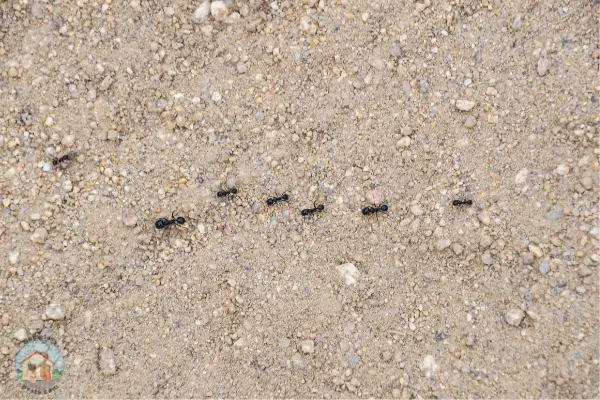
So, although vinegar isn’t the quick and affordable ant killer you were hoping for, it’s still a pretty good way to repel ants.
How to prepare a vinegar ant repellent
The most effective vinegar ant repellent is made of one part water to one part vinegar.
Pour the liquid into a clean spray bottle and shake well.
I recommend that you use vinegar to repel ants in three main ways. Ideally, you will try all three methods to have the best odds of this working. Nevertheless, using vinegar isn’t a sure way of getting rid of ants (or any other pest) – so you may have to graduate to something stronger if this doesn’t work.
Method one:
Apply vinegar on your doors and windows: Spray vinegar on the different points of entry ants use. That may solve your problem on a short-term basis because ants are bound to look for other ways to get in if there’s food in your house.
Method three:
Spray vinegar on ant trails: Identifying ant trails is easy – because you will see ants coming and going on the same path. Whenever you see ants moving around on the same path, grab your bottle and spray vinegar all throughout.
Method two:
Pour vinegar on ant hills: The final step is to look for the ant hill and drop a considerable amount of vinegar on top of it. Doing so will either drown them or drive them away because of the acetic acid smell. Soon after, the ant hill will cease to exist.
Warning: Make sure that you also carry out the two previous steps in order to minimize the chances that the ants will migrate toward your house.
How long does it take white vinegar to get rid of ants?
As we’ve seen, the way that vinegar works on ants is by disrupting their food supply trails and by driving them away with its smell.
So, using vinegar to repel ants can be effective in as little as a few hours. This is especially true if you’ve targeted a particularly busy ant highway.
You will start noticing the effects during the first hour and eventually see definite results after three or four hours. Nevertheless, you will fail to see results (i.e., continue to see ants inside your home) if you don’t spray enough vinegar around your house.
You have to identify every point of entry ants use before seeing results. For example, let’s say you sprayed vinegar on your front door – but ants are coming through a crack in your window. It doesn’t matter how long you wait, ants will continue to invade your house. For that reason, you need to spray every point of entry to be sure.
Of course, you don’t have to go crazy spraying vinegar around your house every ten minutes. Once you cover every door, window, and similar, you’re good to go. Wait for a few hours to see what kind of results you have.
If you continue to see ants come and go after spraying vinegar, you need to check whether ants are not coming in through holes in the wall or similar places.
Ants won’t knock on your door as a guest would – they’ll try to get in by any means possible!
Can vinegar be used to repel ants and other pests?
I know from personal experience that you can certainly use vinegar to repel any type of ant coming into your house. Thanks to the acidic content of vinegar, you can destroy any ant trail in or around your home. At the same time, you can seriously disrupt any kind of ant hill using vinegar too. Pour it on top of it and wait for the vinegar to act.
When it comes to vinegar and other pests, you will have excellent results using this household item as a repellent. Vinegar can be a great way of keeping spiders out of your home and also deterring mosquitos
Remember, it may not be strong enough to kill most pests, but it will repel them just fine. In fact, you will probably repel anything you don’t kill when you spray vinegar around.
The main method of using vinegar to repel other pests is the same as using it to repel ants.
Spray it around on every point of entry, different trails insects use, and their nests if possible.
The caveats are the same too. If you spray vinegar all around your house and still see pests coming and going, you’re missing something. At that point, you should consider calling pest control.

Can vinegar be used inside and outdoors to kill ants?
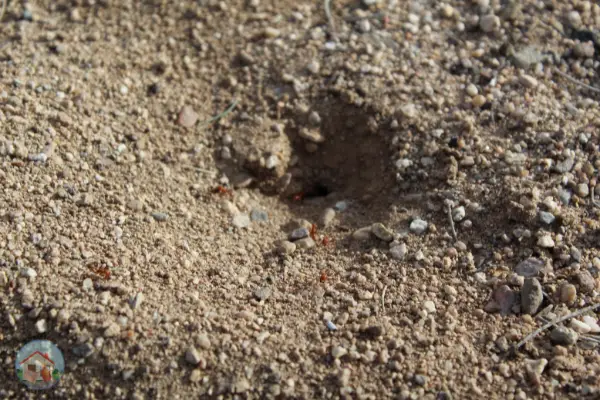
Vinegar is a weapon you can use both inside and outside your house in your battle against ants and other pests. Be careful not to spray vinegar on wooden floors or furniture, though. You can damage wood that way. Other than that, spray away and wait for ants to scatter.
The one thing that may bother you or your family members is the smell of vinegar. It can get a little intense, and some can’t stand it. Make sure you test this method outside before you start spraying vinegar inside your home.
If the smell of vinegar is too strong, you can use water to dilute it – but keep in mind this may reduce its effectiveness.
Here’s a final caveat for you before you start spraying vinegar. The scent of vinegar may attract certain bugs such as fruit flies or aphids. So make sure that all food is tightly sealed before you start spraying vinegar around your kitchen.
Final thoughts
In conclusion, vinegar is not a very effective insecticide and it won’t kill off your ant infestation. However, it can be used to repel ants and other pests, and it’s a relatively safe and natural method. If you have any serious pest problems, though, you should call a professional.
